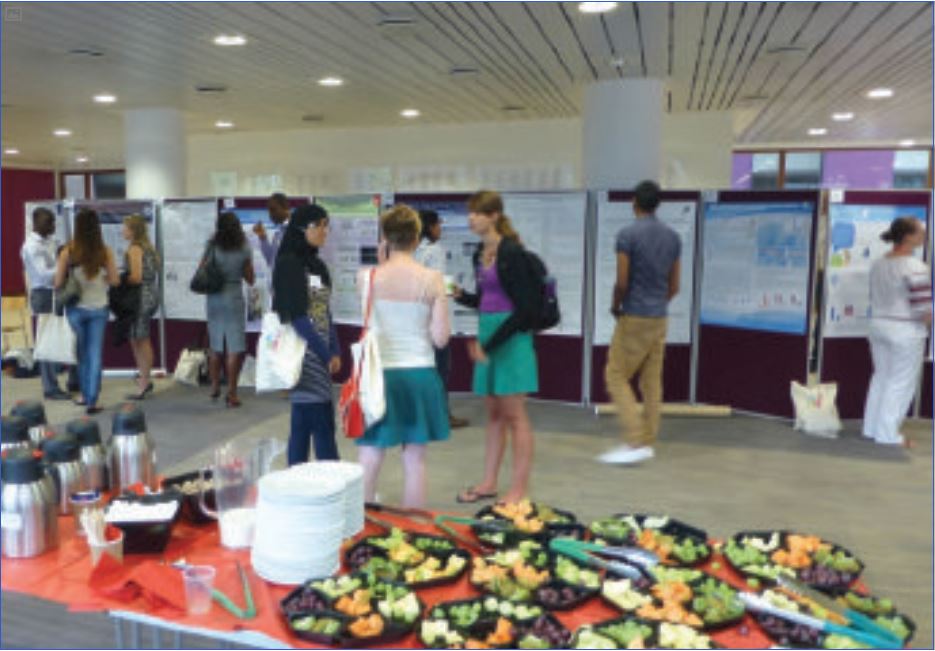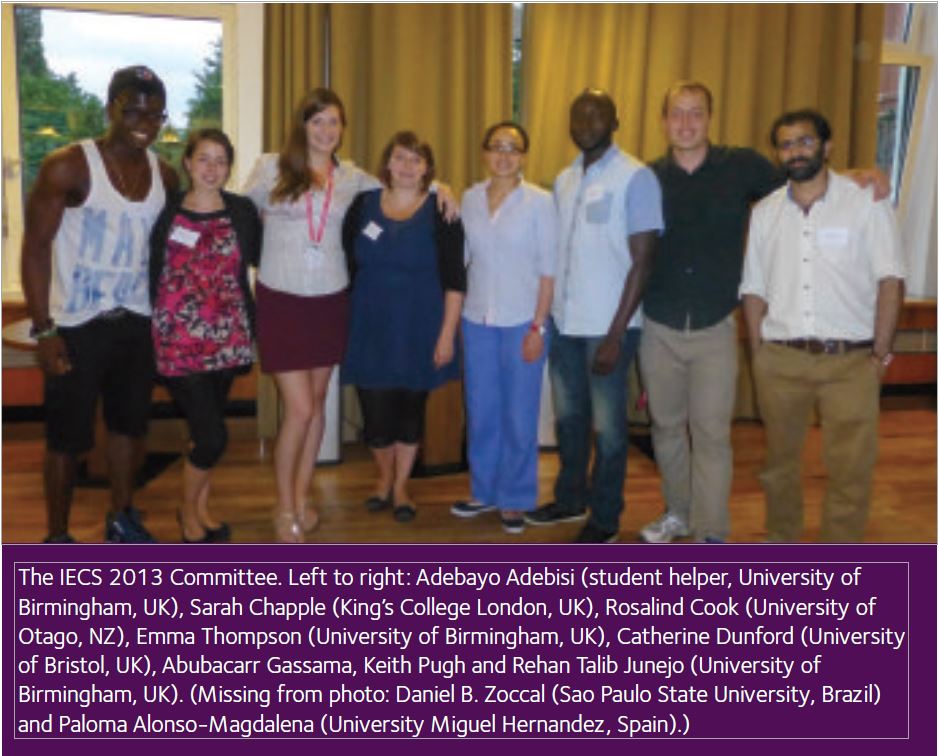
Physiology News Magazine
Meeting Notes: International Early-Career Symposium (IECS)
Events
Meeting Notes: International Early-Career Symposium (IECS)
Events
Emma Thompson
University of Birmingham, UK
https://doi.org/10.36866/pn.92.20a
20 July 2013
University of Birmingham, UK

IECS ran as a satellite to IUPS 2013 and was organised by an international committee of early-career physiologists. The theme of the meeting was ‘Clinical and Translational Physiology’, and we aimed to integrate basic physiological research with resulting therapeutic applications. To this end we ran three focused sessions, ‘Cellular and Neurophysiology’, ‘Cardiovascular and Respiratory Physiology’ and ‘Endocrinology and Metabolism in Health and Disease’, and included talks presenting results from in vitro experiments through to application in humans within each.
We welcomed over 70 delegates from around the world, and they provided us with 16 outstanding talks and over 40 poster presentations. The standard was extremely high and our congratulations go to the prize-winners: Juliana Angheben (Federal University of São Paulo) for Best Oral Presentation; Anusha Seneviratne (Imperial College London) for Best Poster Presentation; and Dominika Bijos (University of Bristol) for Best Scientific Image.
As well as the impressive contributions from our delegates, we were very pleased to welcome two world-renowned keynote speakers, Michael Joyner (Mayo Clinic) who gave a talk entitled ‘Physiology and the Future Oversimplified’, and Mark Hanson (University of Southampton) who spoke on ‘Why Physiology is Needed to Meet the Post-2015 Global Health Challenge’.
We also ran four interactive workshop sessions on issues important and relevant to early-career scientists, ‘Career Development and Opportunities Overseas’ (Richard Wainford, Boston University), ‘Statistics and Study Design’ (Gordon Drummond, University of Edinburgh), ‘Scientific Writing and Getting Published’ (David Sheppard, University of Bristol) and ‘Scientific Outreach’ (Sarah Chapple and Aisah Aubdool, King’s College London).
Throughout all of the sessions there were great questions and interaction from the audience, as well as from a number of our invited academics. This created a relaxed and friendly atmosphere and allowed for exciting scientific discussion and exchange of ideas. We also had a drinks reception and evening social event, giving further time for networking as well as a brilliant quiz which included a physiology picture round!
The day would not have been possible without the generosity and support of our sponsors; The Physiological Society, The University of Birmingham’s Centre for Learning and Academic Development, Integrated DNA Technologies, Abcam and New England Biolabs. Special thanks go to Don Whitley Scientific who brought a wonderful display as well as wine and cheese!
As a member of the organising committee I would like to extend my sincere thanks to The Physiological Society for the opportunity, my fellow committee members who worked so hard to make the day run smoothly and to all those who attended. I hope these events will continue to take place to encourage and aid the development of early-career physiologists. This will be key if, as Denis Noble said in his IUPS opening address, physiology is to move back onto centre stage.

